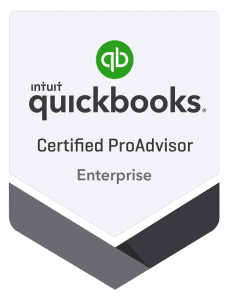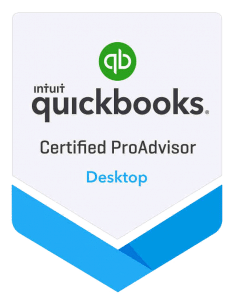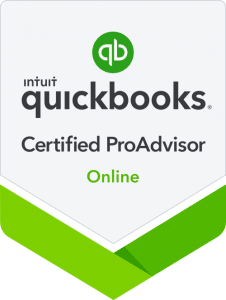Managing a small business means wearing a lot of hats. Between handling customers, running day-to-day operations, and keeping things on track, it’s easy for financial records to get pushed aside. But keeping up with your bookkeeping every month can help prevent bigger headaches down the road. It’s more than just tracking expenses. It’s about making sure your financial health stays on the right path.
Monthly bookkeeping gives small business owners consistent updates on how their business is doing financially. It helps reduce surprises, allows for quicker decisions, and gives a clearer picture of where the business stands. Instead of scrambling once a quarter or at tax time, a monthly process keeps everything more manageable, and your books more accurate.
Improved Financial Accuracy
When your bookkeeping is updated monthly, mistakes are easier to catch and fix. Waiting too long between reviews can let errors pile up. A missed expense or duplicated entry might seem small, but over time, those add up and cause bigger issues when you need your financial statements to be right.
Monthly bookkeeping helps reduce the risk of:
- Wrong or missing transactions
- Misfiled receipts or invoices
- Bank statement mismatches
- Overlooked employee reimbursements
Say a payment to a vendor is recorded twice. If you’re doing your books every month, you’ll probably spot and correct that quickly. But if it lingers for months, it could throw off your entire balance. The more often you look at your records, the easier it is to stay accurate. Bookkeeping then becomes a consistent part of your business routine instead of a rushed catch-up activity.
Better Cash Flow Management
Knowing where your money comes from and where it goes is key to staying in control. Monthly bookkeeping gives small business owners a clear view of cash flow, which is one of the most important parts of financial management. Without that insight, it’s tough to plan anything like hiring, buying inventory, or even just paying the bills.
Tracking income and expenses every month lets you:
- Notice patterns in revenue and spending
- Spot overspending in certain areas
- Prepare for slow seasons or unexpected costs
- Make smarter choices based on real numbers
It’s a lot harder to make good decisions with outdated info. Monthly bookkeeping keeps your financial picture current so you’re not running blind. For example, if you notice slow incoming payments from customers over the last two months, you’ll know to follow up or adjust your billing process before it gets worse. These regular check-ins help keep your business stable and more prepared for what’s coming next.
Timely Financial Reporting
Having up-to-date financial statements is like having a flashlight in a dark tunnel. When you update your records monthly, you ensure that your financial statements reflect the current state of your business. This accuracy helps you make informed decisions that can guide your business toward growth. Instead of guessing based on outdated data, you benefit from a clear snapshot of your situation.
With timely reporting, you’re better prepared for:
- Crafting effective business strategies
- Making informed hiring and purchasing decisions
- Preparing for meetings with investors or partners
- Staying on top of tax obligations and deadlines
Accurate monthly reporting also means less stress during tax season. You’re not hurriedly gathering receipts and invoices at the last minute. Instead, you’re organized and ready, which is a relief for anyone who’s ever scrambled at the eleventh hour to get their taxes in order.
Enhanced Financial Planning
Regular bookkeeping is key for setting and hitting financial goals. By consistently tracking income and expenses, you can identify trends and adjust your strategies if needed. If you see that certain products or services bring in more revenue, you might decide to focus more resources on those areas. And when you have accurate numbers, building realistic budgets becomes easier.
Forecasting becomes more reliable too. By looking at consistent data, small business owners can predict busy seasons, plan for investments, and prepare for surprise costs. A pattern in your monthly profits might hint at the best time to grow or bring in extra help. This kind of planning only works when your financial records are reviewed and updated often.
Streamlined Tax Preparation
Imagine tax time without the panic. That’s one of the biggest upsides to monthly bookkeeping. When you track and organize records all year long, tax prep becomes a simple task instead of a stressful race. You’re not rushing to gather paperwork, and you’re confident your numbers hold up.
Another advantage is being audit-ready. Keeping detailed and organized records every month gives you peace of mind. You won’t be stuck digging through drawers trying to find a receipt from last spring. Everything is already documented and filed where it should be. That saves time and stress for you and your accountant.
Why Monthly Bookkeeping Matters
Adding monthly bookkeeping to your workflow supports long-term success. It creates structure, improves accuracy, and gives you a better view of your finances. No more scrambling at tax time, guessing at cash flow, or making decisions in the dark.
It turns your spending and income data into useful insights. That way, you lead with clarity, not confusion. Good bookkeeping isn’t just about keeping records. It’s about helping your small business do better month after month. With each update, you build a stronger foundation so your business can keep growing.
FAQs
How does monthly bookkeeping differ from quarterly bookkeeping?
Monthly bookkeeping keeps your records current and makes it easier to spot problems early. Waiting every quarter can lead to surprise errors that take more time to fix.
Can monthly bookkeeping help in securing loans or investment?
Yes. Lenders and investors want to see clean, up-to-date records. When you have organized financials, you’re more likely to make a good impression and get approved.
What tools or software are recommended for monthly bookkeeping?
QuickBooks and Xero are two of the more popular picks. Both allow you to track expenses, generate reports, and stay organized. Use one that fits your business size best.
If you’re ready to take your financial management to the next level, explore how monthly bookkeeping with Cloud Bookkeeping can simplify your operations and support long-term growth. Let’s work together to keep your business organized, accurate, and one step ahead.






